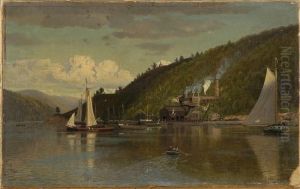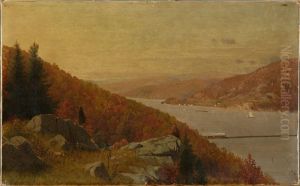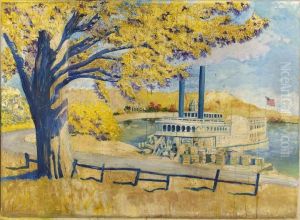Frank Hartley Anderson Paintings
Frank Hartley Anderson was an American artist, wood engraver, and printer, known for his contributions to the Arts and Crafts movement in the United States. Born in 1886, he developed an interest in the arts at an early age. Anderson was not only an artist but also an educator and a significant figure in the revival of fine bookmaking and wood engraving in the United States during the early 20th century.
Anderson studied at the Art Students League of New York and later at the New York School of Art, where he was influenced by the Ashcan School, a movement known for portraying scenes of daily life in New York City with gritty realism. However, Anderson's work diverged from the Ashcan School's focus on urban subjects; he was more drawn to the natural world and pastoral scenes, which would become a hallmark of his engravings.
In the 1920s, Anderson became deeply involved with the Arts and Crafts movement, which advocated for traditional craftsmanship and decried industrial mass production. As part of this movement, he founded the Anderson Print Shop in New York, where he produced limited edition books and prints that emphasized the beauty of handmade works. His expertise in wood engraving was highly regarded, and his works were characterized by their exquisite detail and textural richness.
Throughout his career, Anderson collaborated with various authors and publishers, illustrating books and creating original prints. He was also a founding member of the American Woodcutters Society, which aimed to promote and preserve the art of wood engraving. Anderson's work was exhibited in numerous shows, and his prints are held in the collections of several prestigious institutions.
Frank Hartley Anderson passed away in 1941, but his legacy lives on through his contributions to the revival of the wood engraving technique and his influence on the American Arts and Crafts movement. His dedication to craftsmanship and his love for the natural environment continue to resonate in the works he left behind.


